Anita Yusof
Today’s rider is Anita Yusof from Malaysia. In less than two years of riding she has already earned a place in the record books for some of her adventure riding exploits. She is in the process of writing a book about her travel but alas for us English speakers, the book will be in Malay. In this interview, Anita talks to us about her path into motorcycling, her rides through Central Asia and Southeast Asia, solo motorcycle camping, and her life philosophy which allows her to take on risks that few others would. Sit back and enjoy this wonderful read. [Rashmi Tambe, Editor]
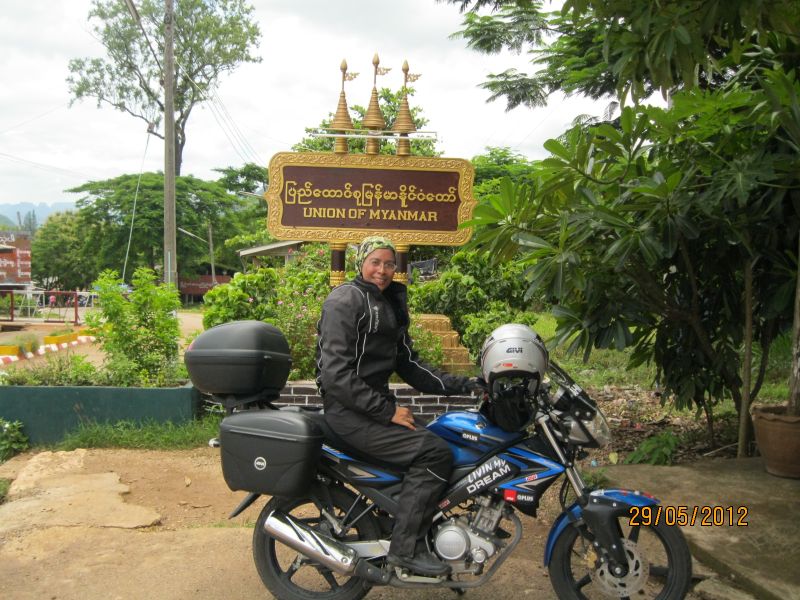
Hi Anita, can you introduce yourself? My name is Anita Yusof. I am going to be 47 years old this year. I am a mother of 2 boys, aged 25 and 20. I work as a lecturer at a teacher’s training institute and my field is sports science and physical education.
I received my early education from a few different schools due to my father transferring from one place to another. After I finished secondary school, I went to a teacher’s training college to obtain my diploma in teaching. I became a teacher soon after graduating, and pursued my first degree and then my masters degree. Currently, I am doing a PhD at a local university.
I love travelling and I want to go around the world on a motorbike. I also hope that I can achieve my PhD before I reach 50 years of age. :)
How did you get into motorcycling? My one and only hobby is travelling. Previously, I used to backpack everywhere, and mostly it was done solo. I love the challenges of travelling alone.
Early in 2012, I read a cyclist’s blog about Kyrgyzstan. I was at awe looking at how beautiful this country is. I contacted the cyclist and asked questions about how to get to the beautiful places he went to. He told me that the places were remote and I had to rent a 4WD with a driver to get there. Of course the price was costly, especially considering that I normally travelled alone.
Another option was to cycle like him. However my job commitment didn’t allow me to take long leave. This left me with the only option – riding a motorbike. This is how it all started for me. I got in touch with another adv rider and through him, I learned how to become an adv rider.
What is your first memory involving motorcycles? I tried riding my late father’s motorbike (without his knowledge and permission) and I ended up falling with the bike inside a drain. My father was very angry at me. I was 15 years old then. That was the first and the last trial for me due to the trauma. I didn’t ride a motorbike after that until I was 45 years old in 2012. That was 30 years after the incident.
What bike did you first start on and why? I have only one motorbike, a Yamaha FZ150. As I was a newbie, my trainer recommended me this bike because it is easy to handle and fuel-efficient.
If I rode it slowly, like below 80 kmph, the full 12 litre tank can take me up to 430kms. I have taken this bike to the high mountains (above 4000m) in Pamir, Tajikistan. No matter how cold the morning was and no matter how many times I drop the bike, when I tried to start it, the engine will roar within one trial only. It is also a good bike for rough conditions. (Proven from the hard and challenging offroad ride in Kyrgyz and Tajik).
Do you have a motorcycling achievement that you take pride in?
The Malaysia Book of Records recognized my solo ride to the Central Asia countries and published it in their latest edition. The record title was, “First Malaysian woman to ride solo across 5 Central Asian countries on motorcycle”.
Can you talk about some of your long distance road trips?
Yes, of course. I picked up riding skills to ride long distance and overland to other countries. Within my 22 months of riding experience, I rode solo to Thailand, Myanmar, Laos (until Laos – China border), Cambodia, Vietnam, Philippines, Borneo, Kalimantan, Brunei and 5 Central Asian countries, namely Uzbekistan, Kazakhstan, Kyrgyzstan, Tajikistan and Afghanistan.
My favourites are definitely the “Stan” countries. I have lots of unforgettable memories from this ride. The best were being able to mix with the locals and learning their cultures. Among the challenges I had to face were having to ride on very rough road (4148kms badly damaged asphalt and 1250kms pure off road), sand storms in Afghanistan, very strong winds in Tajik mountains & Uzbek, countless road washed away due to flood, avalanches etc, countless wet crossings and extreme temperature (2’ – 52’Celsius). I also experienced water poisoning and diarrhea in Tajik.
Wow, you rode alone through Afghanistan! Can you describe what that was like?
I only managed to ride from Termiz (the Uzbek-Afghan border) to Mazar-e-Shariff which was about 100km. Geography-wise, during that stretch the land was flat, filled with bushes, and with sand hills at certain parts. The wind was very strong and I encountered sand storms. There were lots of petrol station the entire way, almost every 400-500 meters.
I saw lots of motorbikes on the road in towns like Hairatan and Mazar-e-Shariff – a very different scenario compared to the other ‘Stans’ I had been to. Life was pretty much normal here where people and businesses ran as usual, as if the country was not at war. At every gate upon entering and exiting a new province though, there was a military presence and towers with snipers.I had gone to Mazar mainly to see the Saidina Ali Mosque – the tomb of the last Caliph in Islamic history. It had been a long difficult ride through a sandstorm to get there.
However, I was not let in to visit the tomb, as I was not dressed like the ordinary Afghan woman (a long burka which covered everything from head to toe and not even eyes could be seen). I appealed and tried to explain that I was a Muslim. I was almost in tears. Thank god there was a guy, who was a university student and could speak a little English. He told the guard that I am a Muslim. Only then was I let in, and at that moment, I really couldn’t stop my tears from flowing. I had come a long way… a long long way… had faced lots of challenges… and finally, god permitted me to be there… Alhamdulillah….
Did you make it to the capital city of Kabul? I was able to travel freely until the border guards at the Mazar checkpoint found out that I wanted to go to Kabul and denied me entry. They warned me that the situation in Kabul was unstable and that there had been a bombing there just a week before. I told them that I knew about the bombing but I dared to take my own risk. My principle was very simple – If you are scheduled to die, it will happen even in the comfort of your own bed, no matter where, no matter when, not one minute early, and not one minute late. If you are destined to suffer, it is going to happen no matter what precaution you took. So why the fuss? Didn’t you believe in qada and qadar? Leave it all to Him. He’s the best protector.
However, the guards still didn’t permit me to pass. Their last words were, “as brothers and sisters in Islam, it’s our responsibility to make sure that you are safe while in Afghanistan. Going to Kabul is very dangerous for a man riding solo on a motorbike, what more for a woman!”
What were the reactions of women in the various countries you went through when they saw you? Yes, indeed they were amazed. However, the older women in Tajikistan and Afghanistan didn’t quite like the idea that I was riding solo. :)
You mentioned that you camped during your long rides. Can you talk a little more about that and touch on how safe it was to do wild camping in some of those countries? My wild camping outside Malaysia was done in Kazakhstan and Kyrgyzstan. I did my homework, asked questions to solo female cyclists and they assured me that it was safe to do wild camping in those countries. Of course you had to use common sense, practise caution and trust your guts when your decided to camp alone. I love camping because it saves me some money, but too cold temperature (about 5°C) would leave me with poor sleep as my gear was not up to it.
I have yet to experience camping at an established place with facilities, such as camp sites in Europe or USA. During my rides, I choose camping spots by using my GPS. Most importantly, the place must have a water source, either from lake or river. I will never camp near the road. I will find a trail going at least 300m – 500m inside from the road, safe enough to hide me from the view of suspicious people. Unwanted attention was the last thing I want when doing a solo wild camping.
For food, if I have some rice grain with me, I will cook rice. If not, I will eat bread. Normally I will bring some canned food such as curry chicken or tuna in tomato sauce, so I will heat it, and perhaps slice some onion and add to it. I will also fry some eggs or make omelette and a simple fried vegetable, like cabbage for example. Mmmm… yummy… yummy… :)
Do you have any motorcycling heroes? Definitely my trainer, Hadi Hussein. He rode solo on a small cc motorbike from Kuala Lumpur to London. He also did the Equator Challenge.
Can you tell us more about him and how he came to train you? When I first heard about Hadi, I started to read his blog from the very beginning to the end. I was amazed at how people like him can do unimaginable things to live their dreams. It was one fine day in April 2012 that god decided to meet us both and it took place at NZ Curry House. I can’t help laughing when recalling how naive I was when I told him that I wanted to learn how to become an adventure rider when I didn’t even own a motorbike or have a license. He must have been laughing inside his heart.
He told me to learn to ride a motorbike first before planning on anything big. I took his words to heart and met him two weeks later with a brand new Yamaha FZ150 which I had just bought, with a big L sticker pasted in front of it. I had just learned to ride 5 days previously, when I braved myself and rode the bike all the way from Ipoh to Klang to meet him for the second time. I can still remember how loudly I screamed when the lorries overtook me on the highway, as I was only riding at 60 – 70kmh due to the bike’s confinement period. To cut the story short, we agreed to go for a 22 day introduction Indochina ride on which he would be my sifu and I his student. Before we started, he taught me how to do plotting, how to read the map, how to use the GPS, how to check location by looking at the sun, some bike maintenance skill, how to pick up the bike if I drop it, how to choose the correct riding gear and many more.Lots of things happened during the IndoChina ride. I did things which I never imagined that I have the nerve to do. Honestly, in the beginning, I felt that he was being too strict on me. I was a newbie. I couldn’t even handle the bike properly, but he has took me to the toughest roads from the Thousand Corners in Thailand, to the mountains in Laos, up to the Laos – China border and Laos – Vietnam border, down to the mad and chaotic Phnom Penh streets, east to the crazy Bangkok’s suburb traffics, and finally back to Malaysia. I experienced one serious bike fall and encountered two bridges failure in Laos which forced me to cross the river with a sampan and a raft. God knows how I felt.
I was also instructed to navigate and lead the way starting on the second day in Thailand, to find the accommodation, to look for suitable place to dine, to find the way to attractions, and many more. There were times that Hadi asked me to go first and find certain attracstion myself, and he would meet me there later. I felt like a participant in Amazing Race. Throughout the 22 day ‘hell’ ride for me, we only had 2 days of rest. The other days, we were on the bike for 10 – 13 hrs every day. At that time, I don’t understand his training method and intention. I was tense. I was tired. I wanted to go home. However, through all the difficulties, I managed to finish the ride and returned home safely.
What did I learn from Hadi’s way of teaching? Apart from what I mentioned above, I learned how to navigate the road without the GPS (GPS was broken when my bike fell), I learned how to estimate my fuel consumption by checking the kms covered (odometer was broken due to the fall), I learned how to find my way in darkness of the mountain road in Laos when we still didn’t reach the destination when night had already fallen, I learned what to do when I got lost, and most important thing, I learned to fight my fear and survive in the hardest conditions. These are things which you can never find in any guide or handbook. You can only learn by actually riding with an expert.
Hadi was the best sifu that I will ever have in my whole life. A million thanks is not enough to express my gratitude for the knowledge and experiences that I gained during my ride with him.
[Sifu is a term of Chinese origin which refers to an accomplished teacher who oversees apprentices in certain traditions and philosophies.]
What’s your favorite motorcycling story? I have too many favourite motorcycling stories and its hard to choose only one.
There was this one time when I was stopped by the road side in Merke, Kazakhstan, to check on my map. In a short while, I was surrounded by the locals. They were so eager to ask me lots of questions. Seeing a motorbike in this country is very rare to them, what more when the rider was a woman and riding solo. They asked me to have lunch with them, but I had to politely refuse as I still had a long way to go. All of a sudden, they started collecting money among themselves and handed it to me, asking me to buy food and drink for myself since I couldn’t join them. I was soooo….speechless. It was very nice and kind of them to a lone traveller as me. This incident always put a smile on my face every time I recall it. :)
[Rashmi: What a touching story. The kindness of strangers is the best human experience for a motorcyclist in a foreign country!]
Any hard times on the road? I encountered a near death experience while riding solo in Tajikistan due to extreme heat of 52’Celsius. The road was so rough, the heat was unbearable and I was badly dehydrated to the extent of I fall and fainted by the road side. When I opened my eyes, a doctor was already by my side and the whole village was surrounding me.
[Rashmi: I feel faint just listening to this! You were really brave to keep going in spite of everything.]
Do you do any maintenance and repairs on your bike? Frankly speaking, I have zero knowledge on the technical part. I only know how to change the engine oil and oil filter, lube the chains and pump air in the tyres. I leave the rest to the professionals. I do have a permanent mechanic for my motorbike back home.
Did you ever have a moment in your trip when you wished you had a more powerful bike?
Yes, when I was ascending a mountain pass in Kyrgyzstan. The only fuel that was sold at the petrol station somewhere in the mountain was RON80. It caused my small cc motorbike to lose power and the engine died when I was climbing a steep slope. Given that the road, or I must say a track, was gravel, and my tyres are not 100% off-road tyres, once the engine died and I braked, my bike slid down and fell to the ground. Urghhhhh!!!
You’re wearing a head scarf in some of your photos. Is that for religious reasons? Yes, since I am a Muslim. As you can see, being a Muslim woman doesn’t mean that I can’t ride wherever I like. In my country, women and men were treated alike. What people have heard about discrimination among women are not our religion practises, it’s more specific to different ethnicities. I am one very good example that Muslims do not discriminate against women. :)
That’s very cool! :) Do you wear your helmet over it or do you put it on after taking off your helmet? I wear it all the time. The head scarf is called a buff, and motorcyclists (men and women) wear it to protect the inner layer of the helmet from getting dirty and smelly when we sweat during rides. It is very easy because we can wash it everyday.
Your roots are in backpacking. Can you talk about that? I started backpacking in 2002. My very first backpacking trip was in Europe for three weeks and I did it solo. I was very afraid at that time. However, upon coming back home successfully after the trip, the itch got to me. In the same year, I backpacked solo in Australia and New Zealand for three weeks.
Since then, there is no turning back. I will backpack (either solo or with one female friend) everytime my wallet allowed me to. Since I am a budget traveller, I always opted for cheaper option such as staying at hostels and using bus/train to get from one place to another. I always find a hostel with kitchen facilities so that I can cook my meals. I did lots of research before embarking on a new trip because I didn’t want to waste time getting lost and end up paying more at expensive accommodation and have to take taxi to reach my destination due to lack of information about the places.
I had been to 53 countries. Although my interest now is travelling on a motorbike, I still use my backpacking skills whenever I am in a big city. I stay at dorms and use public transportation instead of my bike to go to tourist attractions in big cities, to avoid hassles such as entering road which is not allowed to motorbikes and ending up paying a fine.
Do you have any advice for people who want to get into motorcycling? You are never too old to start an adventure of your life time. Just do it!!!
RIDING IN MALAYSIA
If I were to visit you and we went riding for one morning, where would you take me? My country has a lot to offer, from beaches to tropical forest to paddy fields to big cities, villages etc. Cameron Highlands is not very far from my place, and can be reached approximately in 1.5 hours of riding.
You will get to experience riding on a winding road and feast your eyes with green scenery. You will also see aborigines selling their products by the road side.
When we arrive in Cameron Highlands, you can taste fresh sweet tea as this place is famous for its tea plantation, besides its strawberry fields. We can also visit cactus valley, rose garden, and the famous waterfall. Normally when people visit Cameron Highlands, they will stay at least one night here.
During the night, there is a very long and interesting night market selling all kinds of products such as strawberry jam, fresh vegetables, sweet corn and fried mushrooms, to name a few. [Link to Route]
What is the best part about riding in Malaysia? The best part about riding in my country is the good quality of paved road, especially when riding on the highway which offers view of oil palm or rubber trees. When riding on secondary roads, the road condition might not be as good as the highway, but it is still paved and safe. Secondary roads will offer views such as villages, paddy fields, rivers, different types of plantations and much more.
If a motorcyclist from another country visited Malaysia, what are the top rides you would recommend? Apart from Cameron Highlands, other top rides are from Gerik to Jeli. If you are lucky, u might see a troop of elephants crossing the road, as this road cuts off the Titiwangsa Range. [Route]
From Kuala Lumpur to Kuala Terengganu coastal ride (and visit the islands with pristine blue ocean on the east coast. [Route]
And for those who love to ride on steep winding road, Genting Highlands is the place. [Route]
What are the best months for riding there? November to February is rainy season on the east coast, whilst February to April is the rainy season for the west coast of Peninsular Malaysia, so this months are to be avoid. Other than that rain falls occasionally as my country lies on the Equator, meaning we have sunshine and rain all year long.
How does the topography of the place you live affect the kind of motorcycling you choose to do?
Topography didn’t give much influence to the kind of motorcycling in my country as the roads are good, be it on lowland or highlands.
Is it safe to ride at night where you live?
As long as you practice caution, it should be okay.
Is there a local motorcycling event that you try and attend regularly? Whenever the time permits me, I would join the lady bikers occasional meet or Bike Week organized at different venues in my country.
Are there any motorcycle specific laws? In bigger cities, motorcyclists must ride on motorcycle lane which was provided by the government. Helmet is to be worn at all times. Riding without a valid license and valid road tax is illegal.
Are motorcyclists discriminated against in any way? I wouldn’t say discriminated, but it’s more of the drivers attitude towards two wheelers, even though not all are like that. Certain selfish and arrogant drivers loved to provoke motorcyclist such as trailing too near behind us when we are overtaking lorry, for example.
Are any motorcycle related sports popular where you live and do women actively participate in them? The international Formula 1 circuit is in Sepang, Malaysia. Women only participate in track days organized by themselves when no competetion is going on.
What is the traffic like and how does it affect motorcycle riding? Traffic is quite bad with traffic jams during peak hours in bigger cities. Motorcyclists using the motorcycle lane can proceed as usual, but those sharing the road with other vehicles need to be extra careful when riding in between the vehicles.
Is motorcycle theft a problem? Yes, in bigger cities. You must make sure that your bike is locked securely when parking at public places.
How are women motorcycle riders treated by most people and by male motorcyclists? With respect and admiration :)
Do you have access to high quality motorcycling gear in your part of the world? Yes, we do have lots of outlets for top motorcycling brands, which sometimes Make it really hard for me to choose. :)
Can’t get enough of Anita? Read more about her travels on her blog.

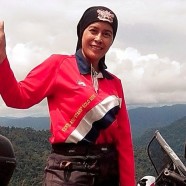





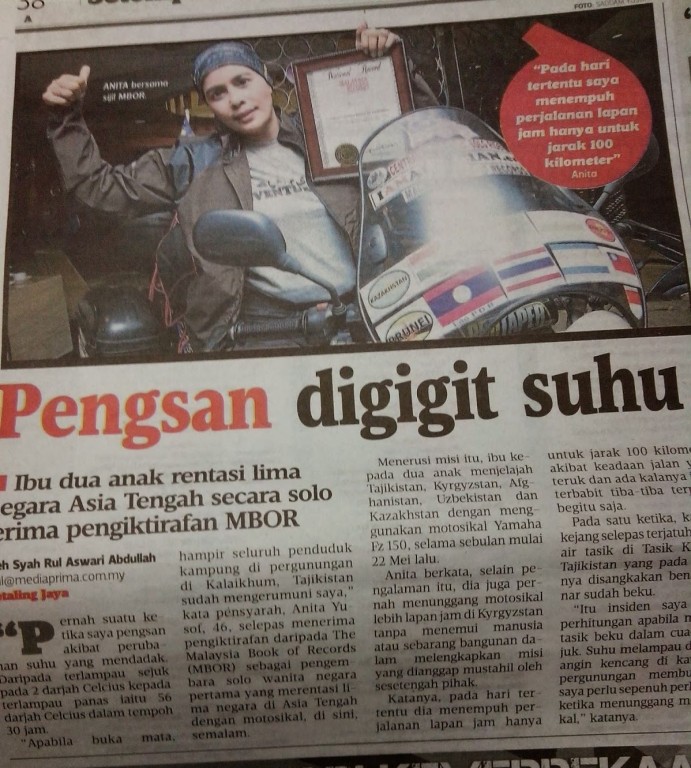
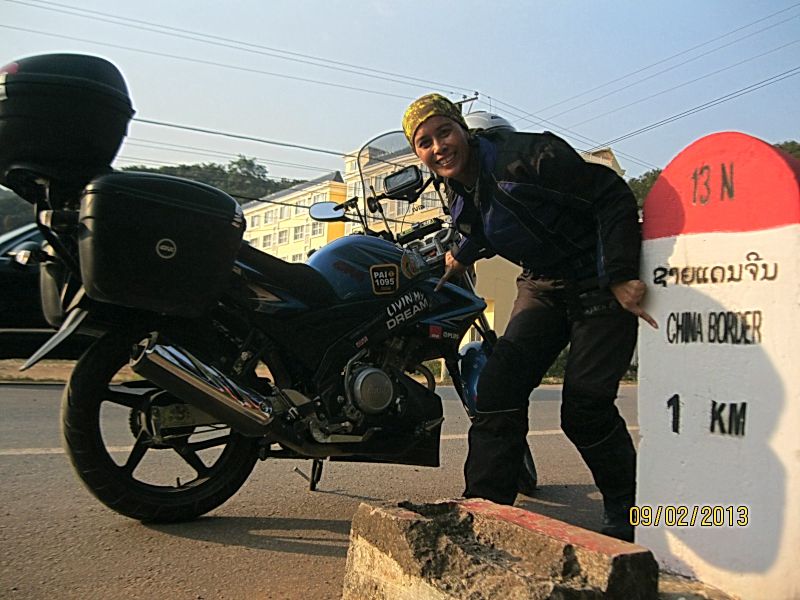
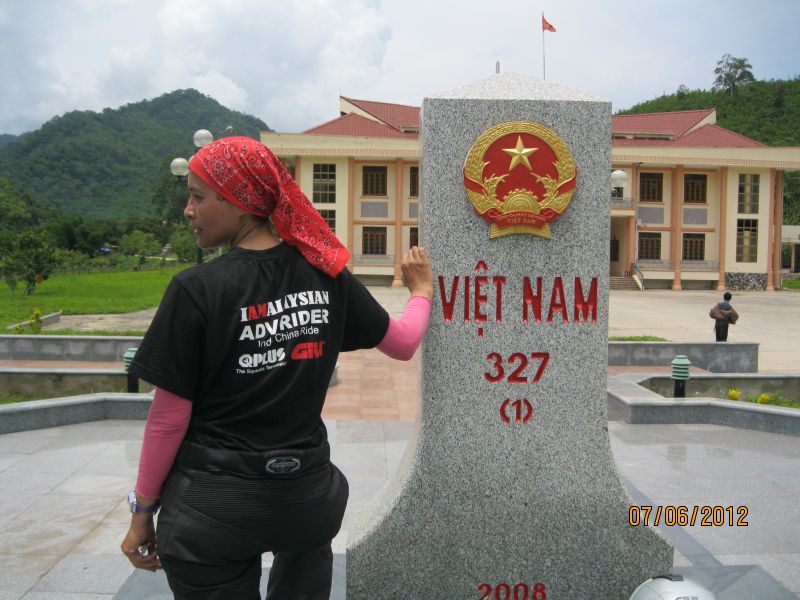
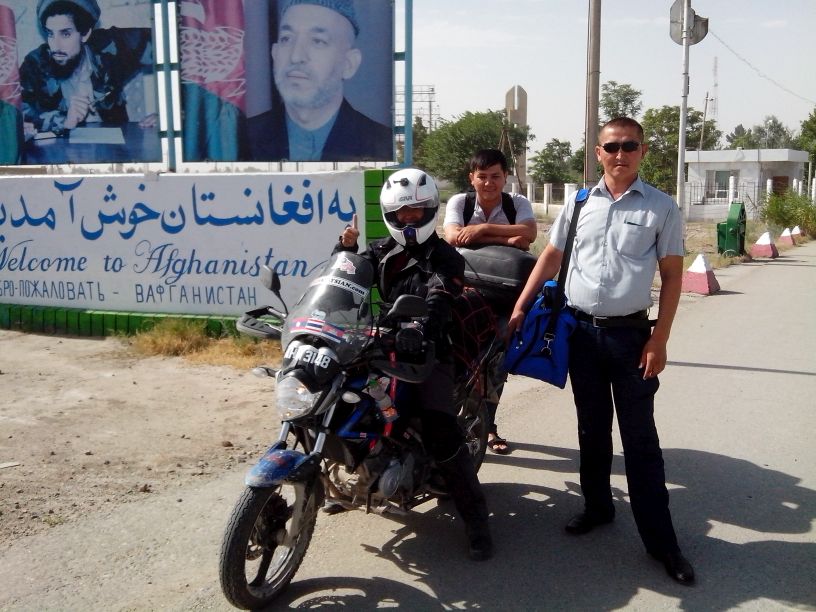
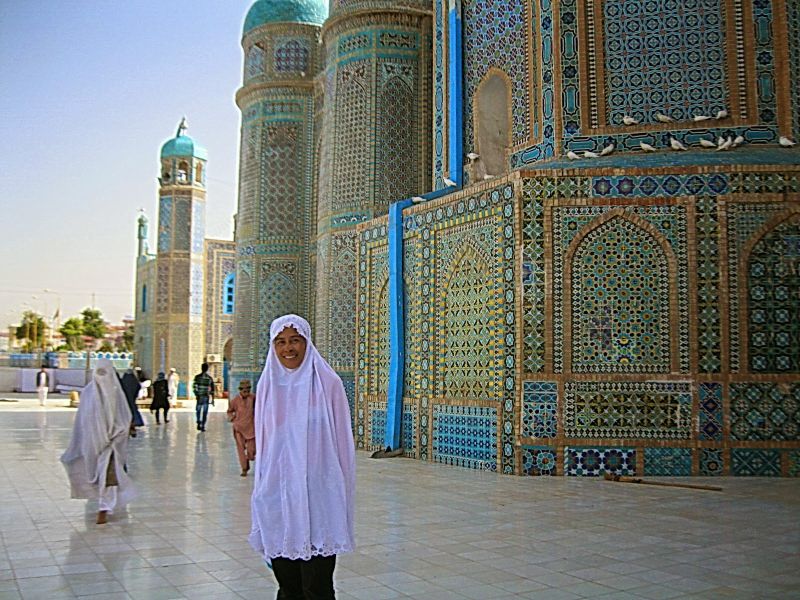
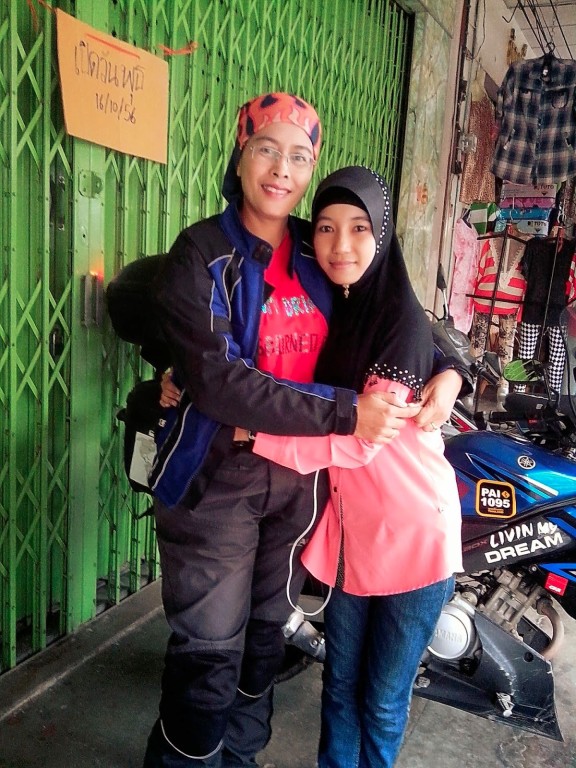
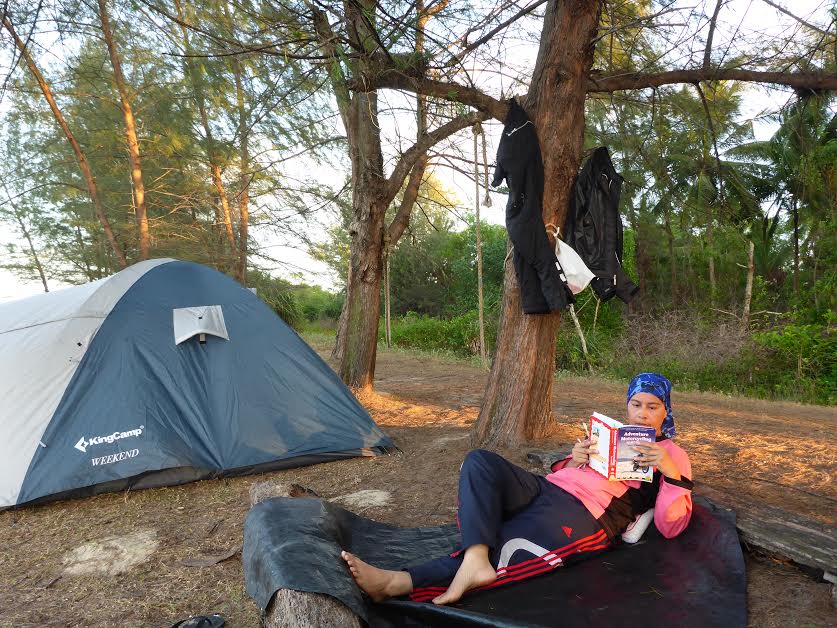
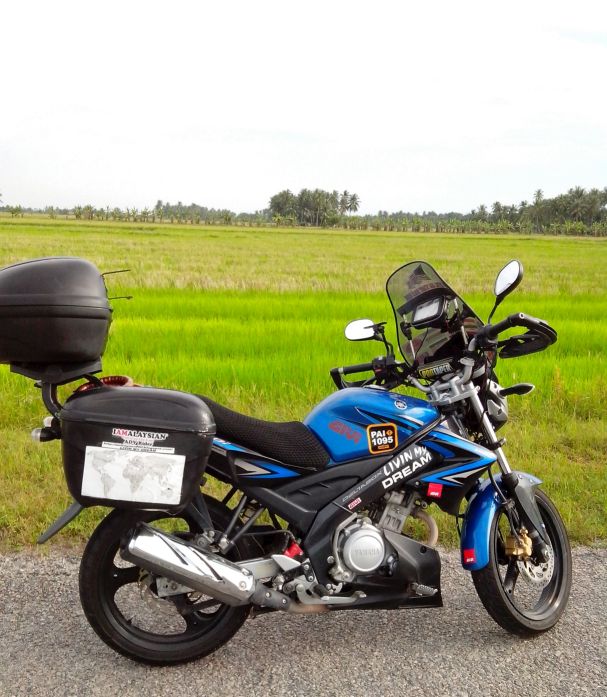
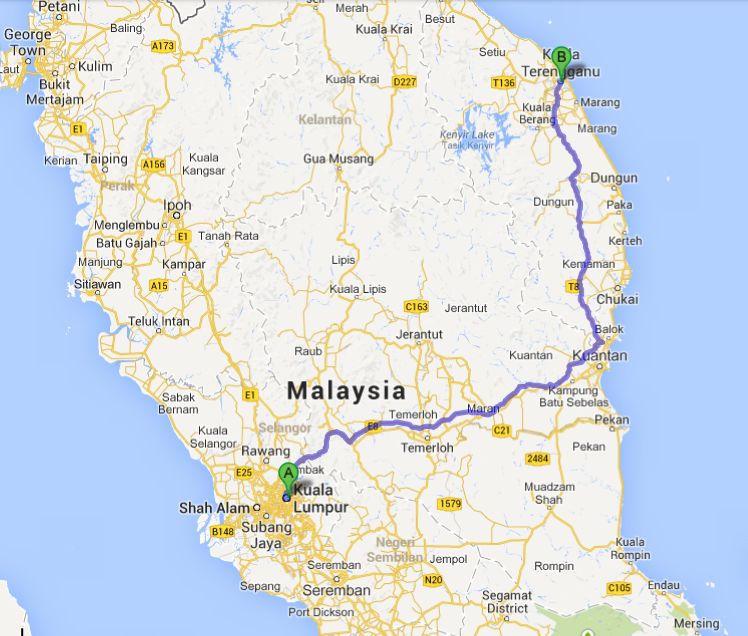
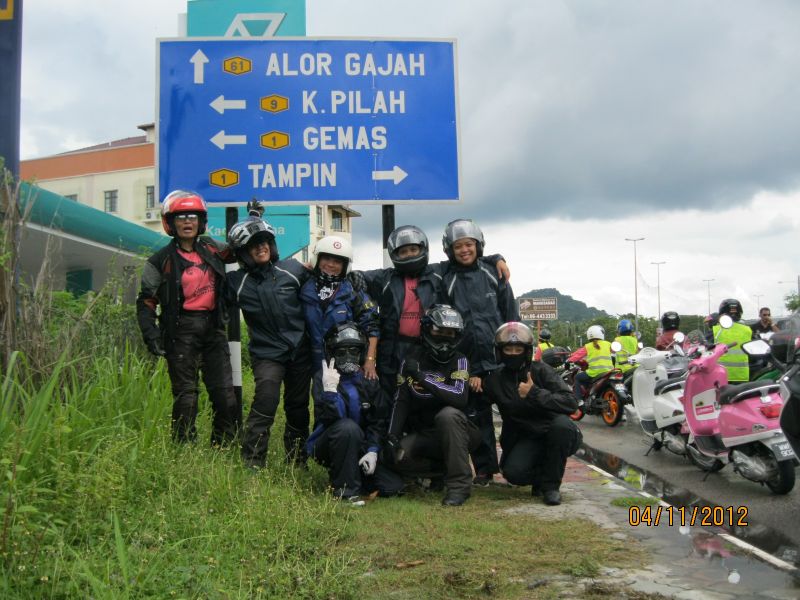
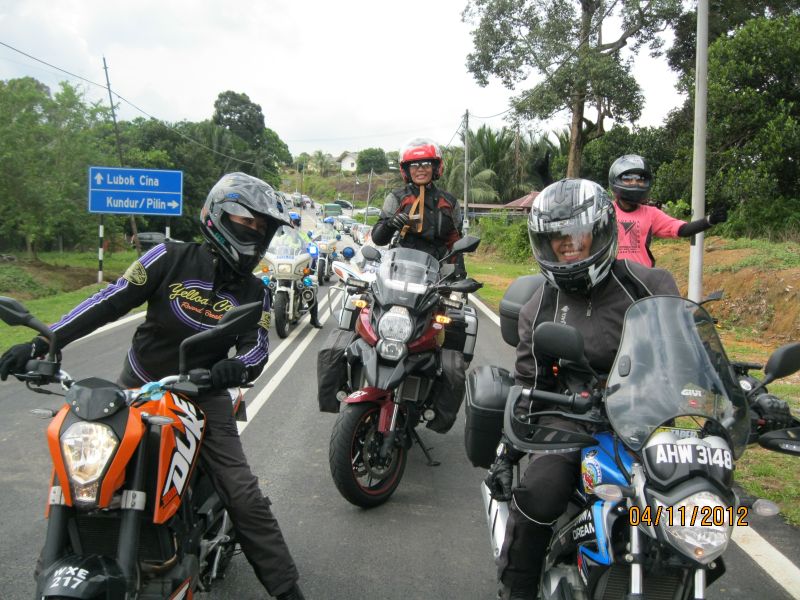
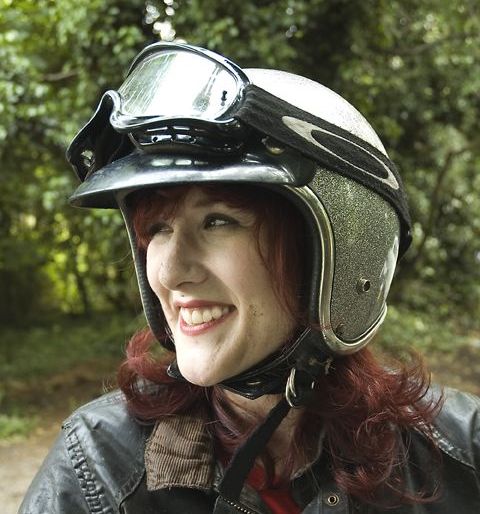
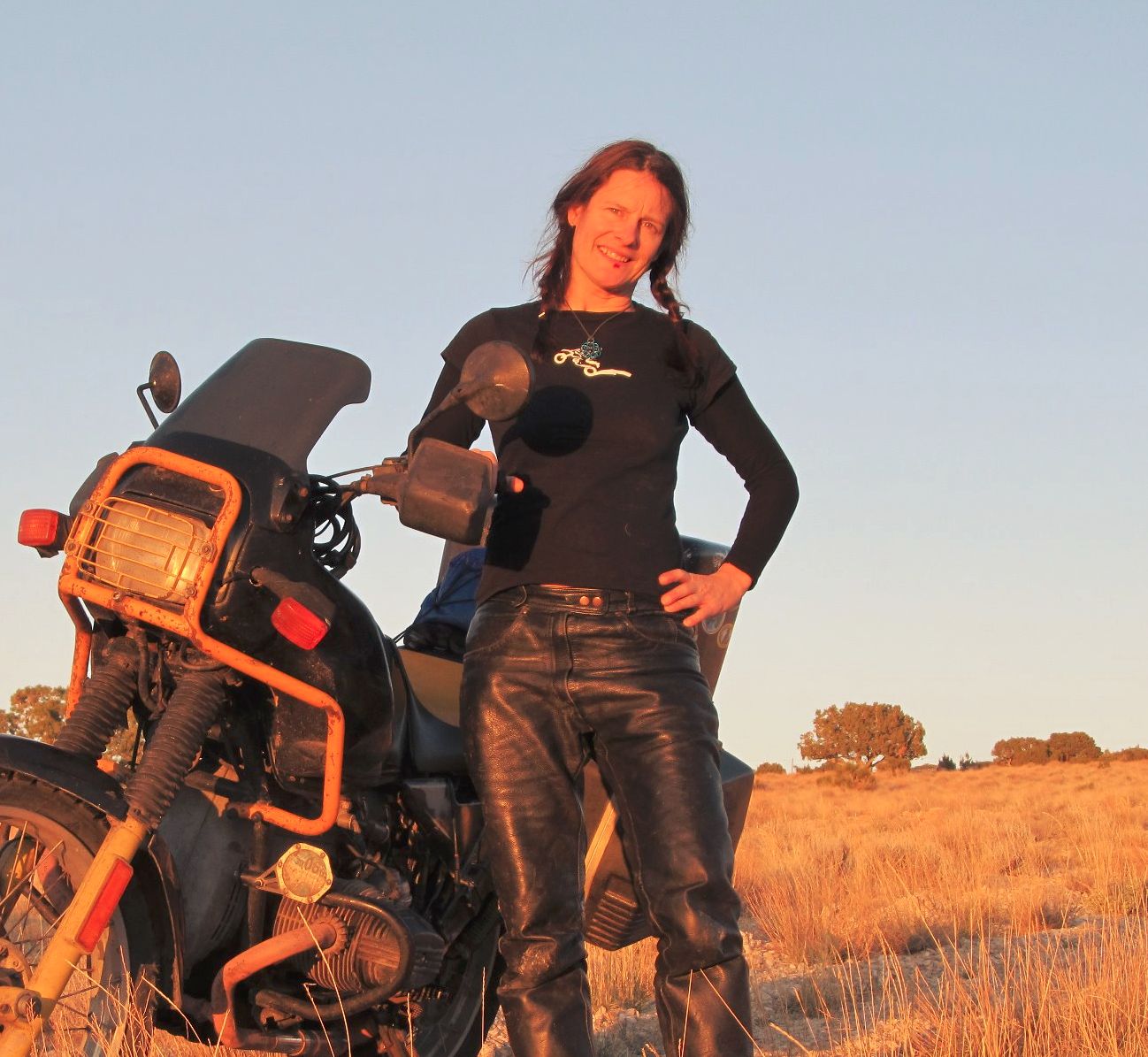
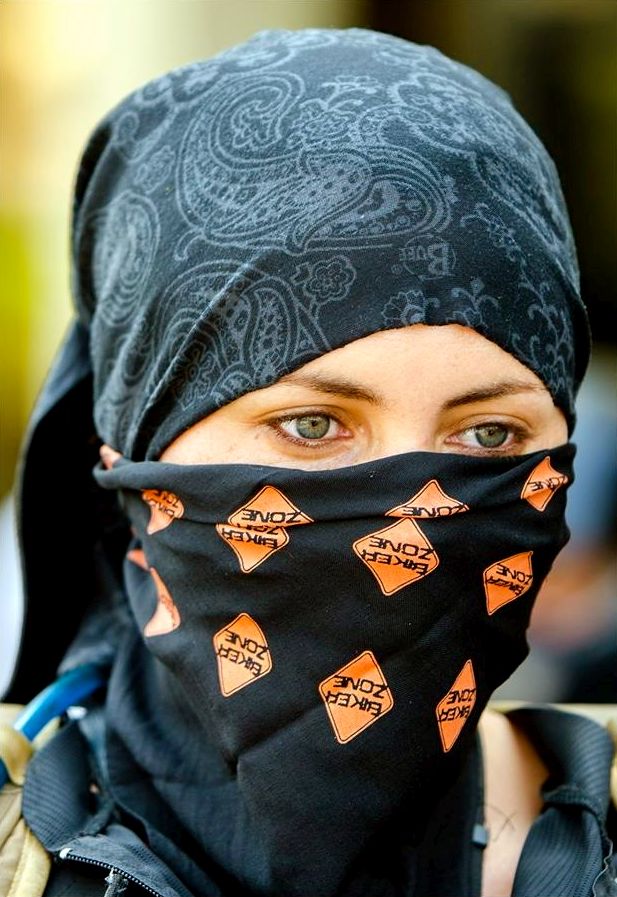
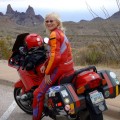
wow, what a great interview with the great woman! She is so brave, real hero! And I would never say that she is 47, she looks much younger!
just ride, and you will still will be younger !
Excellent interview…great questions and thoughtful answers! After reading the interview I have the utmost respect for Anita…Her curiosity about the world, self-knowledge, and philosophy on life leaves me inspired to continue moving forward on my own moto adventure. Thank you!
U r the best kak….i’m proud of u…
Inspiring woman, great interview!
Oh my god. You, are inspirational. Thank you.
Anita is the BEST ! MOTO AID MALAYSIA support Anita Yusof and friends…
Always wonderful to read of Malaysian bikers riding for charities and in support of events. But riding can be very dangerous and there are always news of one or more of them getting into serious accidents. Just as a reminder, if ever a biker gets into problems with his machine on Malaysian roads, there are specialized service providers like : MOTO AID MALAYSIA (24 HOURS BIKER ASSIST) that are ready , willing and able to provide professional help like towing of their expensive and huge machines. They can be contacted at 016-3778183 / 011-26407873 / 03-20969101 . We bikers, always carry their numbers on our machines. MOTO AID MALAYSIA also provide FREE accident assist and claims for bikers. FREE blood group stickers of theirs can also be obtained by contacting them. Blood group stickers are blood type indications to easy with medical help during accidents.
Amazing personality…truly inspiring!!